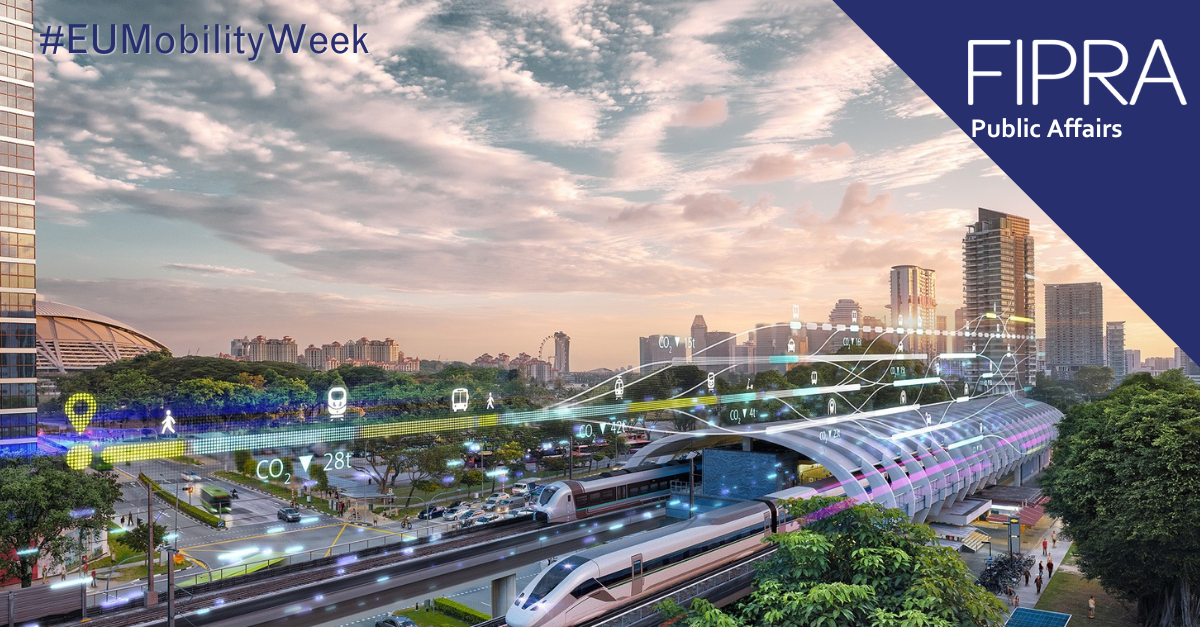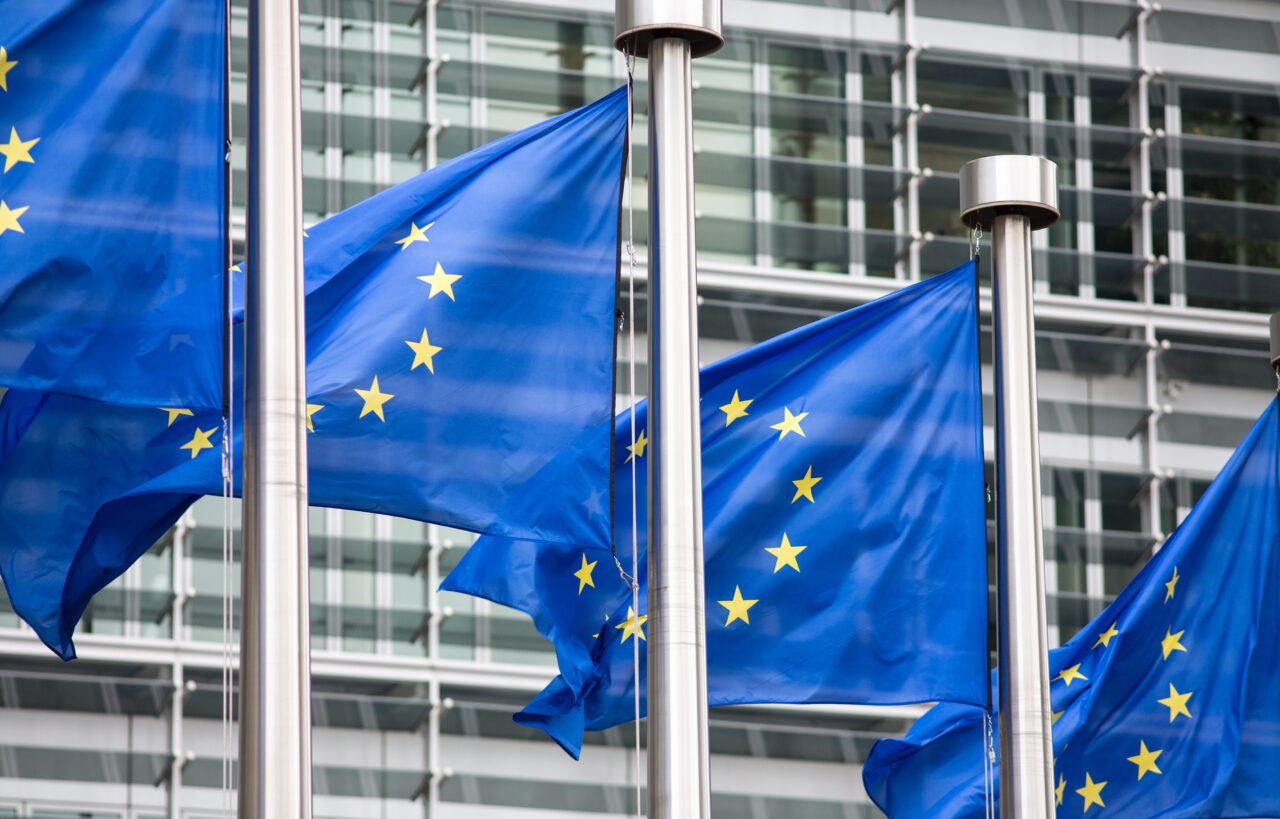policy impact with FIPRA
European mobility week : how to make progress in creating a sustainable and digital mobility ecosystem in Europe

The twin transitions, both green and digital, will be key drivers in innovating Europe’s mobility system across all transport modes. While some good progress has already been made, it remains important to ensure that mobility is not seen in isolation: the twin transition for mobility will require an integrated approach to bring about progress on both energy and infrastructure policies.
No sustainable mobility solutions without more renewable energy
Electrification has become the name of the game for greening road transport, which means access to renewable electricity as well as to sustainably produced batteries. On both fronts, more efforts are needed to ensure that electricity is sourced from renewable energy and that it remains affordable. The energy we are consuming for transportation is very significant. It represents 32% of the total energy demand. The big challenge is that it currently highly depends on fossil fuels, and renewable energy only accounts for 3.7%.
The Parliament and Council have agreed to end the sale of petrol and diesel cars by 2035.
In the second quarter of 2022, sales of battery electric vehicles continued to expand in the EU, now accounting for 9.9% of total passenger car registrations across the EU. However, we still have a major fleet of vehicles on the market with combustion engines; it would make sense to explore carbon neutrality for these vehicles by running these vehicles on e-fuels. It also may be worthwhile to consider e-fuels or electrofuels made from renewable energy resources to supplement electrification after 2035 for the existing fleet, as is currently being discussed between the institutions as part of the trilogue negotiations related to new CO2 targets for cars.
Hydrogen continues to be a potential alternative to battery-powered electric vehicles, but progress on hydrogen powered vehicles is even less significant.
The big question right now is to see how the energy crisis will impact the current transition towards greater use of e-mobility on the road. Higher prices of electricity could have a negative impact on consumer attitude towards purchasing electric vehicles . The cost of this transition will certainly be affected by the energy crisis, and it will be key for Europe’s policymakers to ensure that the green transition which is underway is not put on hold. It will be important to ensure that the pricing of electricity gets decoupled from that of gas, as also mentioned by Commission President von der Leyen in her State of the Union speech.
The challenges and opportunities ahead of us are immense and will necessarily require a connected approach, whereby policy or regulation for future mobility solutions will have to go hand in hand with the right enabling renewable energy and infrastructure support.
Erik jonnaert
At the same time, a more pragmatic approach may be needed; let’s not add new requirements or accelerate timetables as proposed to deliver certain objectives, and let’s ensure that we do not take measures which could undermine Europe’s competitiveness. For example, some argue that the rules proposed in the Delegated Act revising the Renewable Energy Directive are disproportionate, rendering European renewable hydrogen insufficient for industry needs, whilst remaining non-competitive vis-à-vis non-European renewable hydrogen. The initiative announced by Commission President von der Leyen in her State of the Union to create a European Hydrogen Bank to provide the necessary additional funding to enable the creation of a sustainable hydrogen market in Europe should be welcomed.
No sustainable mobility solutions without access to the right infrastructure
Besides the efforts needed to move towards more renewable and sustainable energy, we should also address the connection between the new mobility approach and infrastructure.
At the EU level, this is covered by the Alternative Fuels Infrastructure Regulation (AFIR), which sets out rules for charging and refuelling points along key EU transport corridors (known as the TEN-T network). A vote on AFIR is due in the Parliament’s transport committee in October, having been postponed from July.
According to a recently published research paper by McKinsey for the European automotive industry association ACEA, a network of up to 6.8m public charging points would be required across the EU by 2030 to meet the European Commission’s proposed 55% CO2 reduction for cars. This figure is already almost twice that put forward in the AFIR proposal, and miles away from the 300,000 charging points available today, it is therefore quite clear that this proposal should be reinforced rather than weakened.
The planned review of the Energy Performance of Buildings Directive (EPBD), which complements AFIR by focusing on charging facilities at home and at work, will also be important to enable more convenient recharging of vehicles.
The connection between the future of mobility and the future of infrastructure is even stronger in the context of the transition to more digital mobility systems and solutions; the expansion of 5G across the TEN-T network should enable faster communication between vehicles and between vehicles and infrastructure. Multimodal transport solutions will only be possible if we create the right data sharing infrastructure; this should not only include a seamless cross-border exchange of data between public transport operators and private operators, but also between vehicle manufacturers and other service providers. The proposed Data Act should help to create a first framework but may need to be complemented by more specific rules or guidelines to access vehicle related data, as planned by the European Commission.
Commercial transport & logistics could also benefit from more harmonized rules for interoperable data sharing.
Intelligent transport systems increasing safe mobility will benefit from the Commission’s proposals to ensure a more harmonized approach across the EU.
While cooperative and connected mobility is well underway, automation is still progressing slowly: the Implementing Act adopted recently to authorize automated driving systems is just a beginning with a rather narrow scope focusing on urban mobility solutions through autonomous driving shuttles. It is a first step but not sufficient to deliver the objective set by the Commission in their smart and sustainable mobility strategy to have automated mobility at a large scale by 2030. One of the outstanding questions for Europe will be whether we will enable automated driving only in certain locations or along certain lanes (which would often require an infrastructure intervention), or whether fully automated driving should be mixed with existing transport modes without any additional infrastructure intervention, as already applicable in certain states in the US.
The challenges and opportunities ahead of us are immense, but will always require a connected approach, whereby policy or regulation for future mobility solutions will have to go hand in hand with the right enabling renewable energy and infrastructure support.
That is why this week European Mobility week focuses rightly on ensuring BETTER CONNECTIONS.


